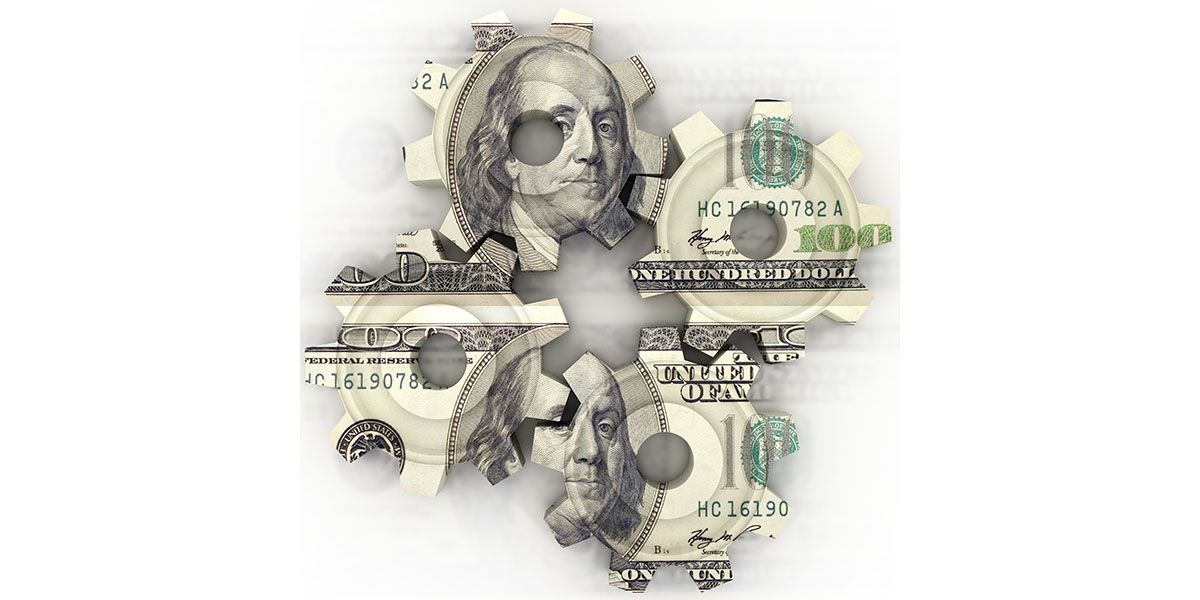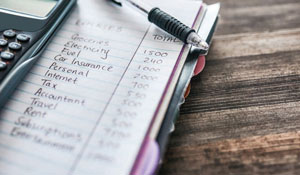Money Matters | Plan Your Way to Financial Peace of Mind

If you don’t know how much is in your checking account right now, you aren’t alone. According to a mint.com survey, 65 percent of Americans said they didn’t know how much they spent last month, and nearly a third of those surveyed said they wished they’d spent less. But you don’t have to resign yourself to being “bad with numbers.” You can become the master of your own financial destiny with some careful planning.
YOUR FINANCIAL CHECKLIST
You’ve conquered budgeting and saving. Here are five more ways to get ahead:
Rethink tax refunds:
If you are getting a yearly refund, you are in effect providing the government with an interestfree loan on your money. Revisit your W-2 and adjust so you come out even at tax time. That money can earn interest in savings, or be used to pay off debt.
Check into mortgage refinance:
Dig into your most recent mortgage statement and find out your interest rate, payoff balance and remaining term. Rates are at historic lows, and you could save big money on your monthly payment and interest over the life of the loan.
Call your insurance agent:
When was the last time you checked your homeowner’s policy? Make sure it includes any costly recent purchases, like art or jewelry. Also, home construction prices have jumped in the past year, so be sure you are adequately covered in the event of a fire/ total loss.
Consider a financial advisor:
As you move toward retirement years, your funds should be allocated differently to guard against market fluctuations. Consult with a financial advisor to review your situation and determine if you’d benefit from expert management.
Improve financial literacy:
Link recommends the books “The Millionaire Next Door” by Thomas Stanley and “The Warren Buffett Way” by Robert Hagstrom. Bengds likes the websites nerdwallet. com, moneywise.org and ramseysolutions.com.
 It starts with the budget
It starts with the budget
“A budget is really the centerpiece of building a successful long-term wealth plan,” says Eddie Link, an advisor with RBC Wealth Management in Roanoke. “A budget is best if you set it in place—and then don’t ‘budge – it’.”
While budgeting is a simple concept (don’t spend more than you make), it takes commitment to stick to it, especially when life gets busy or you feel tempted to make an impulse buy. If you’re tracking your money for the first time, consider programs from mint.com or ramseysolutions.com that can walk you through the process. Your bank may also have a free program available, so that’s another place to start. If you are better with pen and paper, then write it down, or use a spreadsheet on your computer. “The best budget is one you will use, so do what fits your personality and lifestyle,” says Joel Bengds of HSC Wealth Advisors in Forest.
 Bengds says to gather three to four months of credit card and bank statements to get a handle on expenses. From that analysis, it may be obvious what to cut to create a margin for savings. Consider negotiating on non-fixed bills, or search for better deals on your cell phone, internet and other services. Meals out and entertainment costs can balloon when you aren’t minding them, so see if you can trim those back by half. When you’ve negotiated down some bills, canceled services you don’t use (music subscriptions, apps that charge fees, magazines you don’t read), and reined in your weekly Thai food habit, you’re ready to explore what to do with that savings.
Bengds says to gather three to four months of credit card and bank statements to get a handle on expenses. From that analysis, it may be obvious what to cut to create a margin for savings. Consider negotiating on non-fixed bills, or search for better deals on your cell phone, internet and other services. Meals out and entertainment costs can balloon when you aren’t minding them, so see if you can trim those back by half. When you’ve negotiated down some bills, canceled services you don’t use (music subscriptions, apps that charge fees, magazines you don’t read), and reined in your weekly Thai food habit, you’re ready to explore what to do with that savings.
 Saving frees you
Saving frees you
Some people resist the idea of a budget because it feels like deprivation, but if you can switch your mindset to embrace the abundance that savings can bring you, you might find the fun in it. “When we have emergency funds set aside, a budget can help show you where you can spend money,” says Bengds. “This opens up great freedom to give money to charities or people in need, save for retirement, or go on a much-needed weekend trip.”
Link advises to sock away at least 10 percent of your earnings first to retirement, via a company-sponsored 401(k) or other plan, like an IRA, which is offered through many banks and financial institutions. These vehicles are designed for long-term savings, and ideally, you won’t be drawing on the funds until you retire (if you do, you’ll pay hefty penalties).
 You need to have other liquid savings (easily accessible, no penalty for withdrawal) for unexpected expenses, like car and home repairs, medical expenses, or a job loss. If you don’t have any savings, Bendgs says a good goal is to get the equivalent of one month of your essential expenses saved up, and keep increasing that until you have three to six months of expenses. A good strategy is to set up an online savings account that is not part of your daily banking routine; it might be best to use a different bank, so you aren’t tempted to dip into it for non-emergencies. You can set up an automatic deduction from each paycheck, so you get used to living without the money.
You need to have other liquid savings (easily accessible, no penalty for withdrawal) for unexpected expenses, like car and home repairs, medical expenses, or a job loss. If you don’t have any savings, Bendgs says a good goal is to get the equivalent of one month of your essential expenses saved up, and keep increasing that until you have three to six months of expenses. A good strategy is to set up an online savings account that is not part of your daily banking routine; it might be best to use a different bank, so you aren’t tempted to dip into it for non-emergencies. You can set up an automatic deduction from each paycheck, so you get used to living without the money.
When you’ve started retirement savings and built up an emergency cushion, you can begin saving for things you want, like an exotic vacation, home improvements and charitable causes. Imagine how much more you’ll enjoy that trip when you know the credit card bill won’t be following you home! ✦
Budget, Checking Account, Financial Advisor, Financial Checklist, Financial Literacy, Homeowner’s Policy, money, Mortgage Refinance, Retirement Savings, W-2






